|
When
CERN's Large Hadron Collider is completed in 2008, it will be the
world's largest and most expensive machine. Why build an $8 billion
behemoth to search for the smallest particles in the universe? Seven top
physicists describe why it's so important, and explain what they hope to
find. Listen online by selecting Play All, or choose individual clips below.
Listen offline by downloading
clips.

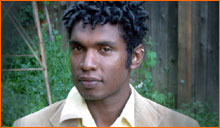
Stephon Alexander
Particle Cosmologist
Penn State University
"The
thing that would surprise me the most is if we don't find the Higgs
particle."

Running time 1:22
|
 |
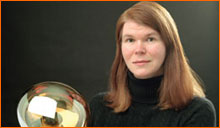
Janet Conrad
Experimental Physicist
Columbia University
"What is so great
about nature is that nature isn't elegant."

Running time 1:26
|
|
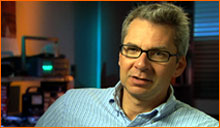
Peter Fisher
Experimental Physicist
MIT
"We don't
understand 97 percent of the universe."

Running time 1:47
|
 |
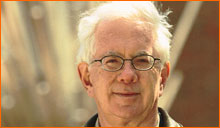
Sheldon Glashow
Theoretical Physicist and
Nobel Laureate
Boston
University
"Either there's something new
and exciting, or the game is done."

Running time 1:44
|
|
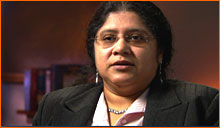
Meenakshi Narain
Experimental
Physicist
Brown
University
"The LHC will give us that evidence
needed to really understand what the state of the universe was after the big
bang."

Running time 1:08
|
|
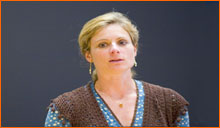
Lisa Randall
Theoretical
Physicist
Harvard
University
"I think it would be incredibly
exciting to find evidence of extra dimensions."

Running time 0:54
|
|
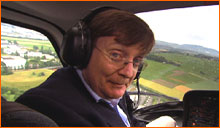
Dave Wark
Experimental Physicist
Imperial College, London
"In some sense, the LHC is just a
pure leap into the dark."

Running time 1:45
|
|
Text version of audio clips
Download audio clips
Stephon Alexander (592K)
Janet Conrad (564K)
Peter Fisher (716K)
Sheldon Glashow (760K)
Meenakshi Narain (448K)
Lisa Randall (384K)
Dave Wark (744K)
This
feature was produced by David Levin and Rima Chaddha, with audio editing by
David Levin.
|
Images: (Stephon Alexander) Courtesy Stephon Alexander; (Janet Conrad) Courtesy Janet Conrad; (Peter Fisher) © NOVA/WGBH Educational Foundation; (Sheldon Glashow) © Boston University; (Meenakshi Narain) © NOVA/WGBH Educational Foundation; (Lisa Randall) Courtesy Harvard University; (Dave Wark) © NOVA/WGBH Educational Foundation
|








